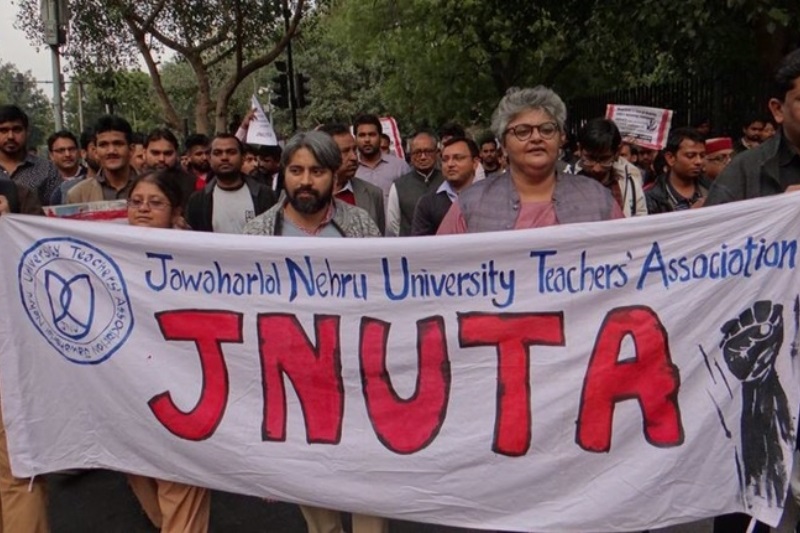279 professors out of 300 voted, demanding the resignation of Jawaharlal Nehru University vice-chancellor Mamidala Jagadesh Kumar.
The JNU Teacher’s Association (JNUTA) had organised a referendum regarding Kumar’s stint as the VC of the University following allegations that he was turning JNU into a “teaching shop,” reported the Quint.
Kumar had been accused of dragging the University “towards a path of destruction under his leadership” and therefore the professors had decided to call for a referendum on August 7, in order to decide by a majority, whether Kumar should continue or resign.
Also Read: JNU professor accused of sexual harassment removed from EPCA
It was conducted on Tuesday and in two segments, where the first referendum was about Kumar’s tenure as the VC and the second was whether the University should take the HEFA loan.
“We condemn, in the strongest possible terms, the harassment, targeting, and humiliation of JNU teachers, by the Vice-Chancellor and this administration in various statutory bodies when the faculty members are merely discharging their duties,” the JNUTA had said in a statement.
It also accused Kumar and his associates of excluding the teachers from any sort of consultation or suggestions before making any important decisions regarding the University.
“The VC shows an absolute disregard for difference of opinion. Any difference of opinion with VC amounts to dissent now in the university. Earlier, the university had ample space for dissent,” said JNUTA President Sonajharia Minz.
According to a report in the Quint, there are seven charges against the VC Kumar led administration, that includes a sexual harassment allegation levelled against a faculty member earlier this year.
Another charge is the decision of the administration to apply for a loan of Rs. 515 crore from the newly set-up ‘Higher Education funding agency’ (HEFA).
The JNUTA states that the “loan will place the University in an unprecedented situation of indebtedness. The VC will leave in some years but the University will be left in huge debt for years to come.”
Also Read: JNU sedition row: Umar Khalid to challenge rustication order in court
It also rejects the compulsory biometric attendance for teachers, which was neither pre-discussed nor was it proposed during the 146th AC meeting, where the management claims that the proposal was passed.
The JNU administration was earlier dragged into court by the professors and students accusing the administration of no communication and of not addressing the concerns of both the parties.

